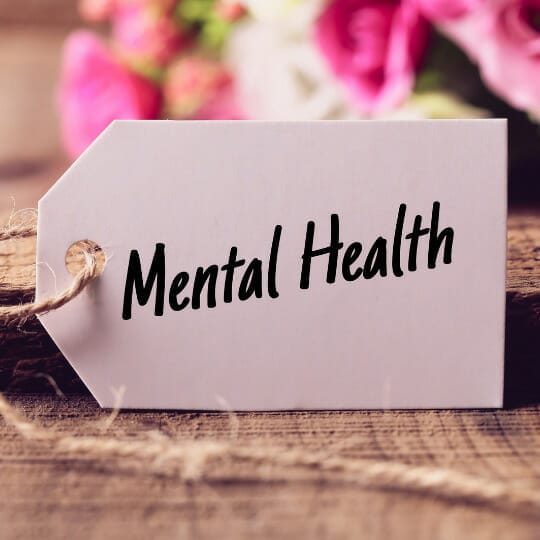
Today, I interview exercise physiologist and health and wellness coach, Zac Jeffcoate to discuss the links between exercise and mental health, the cost of prevention versus injury management, and how the powerful combination of individualised exercise and coaching can empower improvements, save money and improve quality of life at the individual and workforce level.
MW: I’m pretty interested to start by hearing a bit about what you’re really passionate about.
ZJ: Well, firstly, that question gets asked a lot, and the way I answer that is, the passion for me is providing exercise and movement. Initially in my career as an exercise physiologist, we can impact people’s lives really positively. And as I progressed in my career, I found that it’s not so much what exercise does, but it’s more the fact of what exercise, obviously, how it improves the quality of life, and how people actually fit that into their day-to-essentially get to an outcome.
So my passion is actually educating people on the benefits of exercise as my solution and I kind of not sell them what the solution is that exercise is a modality that fits into their lifestyle.
And it’s really important that we look at how diet, sleep, exercise, relaxation, and meditation fit into a physical-mental model. My passion is really the profession, I’ll be honest with you. It is exercise physiology. And beyond that, it’s obviously providing education to anyone who wants to hear.
MW: Wow. And it sounds like you have quite a broad experience. We were talking just before we started this conversation about all of the things that you’ve done. Can you give us a quick recap of your world tour of Australia?
ZJ: Yeah, well, just I mean, I’ve, I’ve got a bit of ADHD probably. So I do a lot of different things.
Initially, when I graduated in 2008, I was offered a job in mining. Unfortunately, I turned up and I tried a uniform on and the guy said, Sorry, Zac, there’s no work here. We’ve lost the contract that’s mining.
It was a humbling experience. My rejection was the redirection to go on a journey, and I set up two AP clinics in medical centres. They’re a great company so did that for about five years. At that time, I was an ABC radio host and had a skit on ABC.

I then worked in Surf Lifesaving as a performance coach and as a Cert IV lecturer in fitness. Then, after five years, I went into the Northern Territory in Tennant Creek, and I worked over there for about three months with a company called Body Fit. We provided access to exercise physiology in remote and rural indigenous communities. That was a great eye-opener.
And then after that, I went to Melbourne for a number of years and worked down with Angelo and the team in Melbourne, in rehab, and then I came back to Perth, to take on the role in rehab services.
MW: Wow, you’ve seen a lot of the country and by the sound of things, a lot of different sorts of people in different contexts regarding exercise.
ZJ: Yeah. And it’s the same message. And I guess the challenge is what you know, the message that you’re trying to portray, it’s about linking that to your target audience or linking that in terms of value. So how does someone who’s recovering from kidney disease take your message, as opposed to someone who’s just been guys diagnosed with anxiety and depression?
So how do you as an AP, or as a health professional, essentially get buy-in or trust from the client? And that’s a hard skill, to be honest with you.
MW: I guess that’s where the coaching approach comes in for you.
ZJ: Definitely. Yeah. And the coaching principles. More importantly, in the client-centred approach, you really have to understand that putting yourself in the other person’s shoes, is essentially, the empathetic approach. Second to that, what is it about what you’re offering do they think they need?
I mean, I’ll be honest with you, a lifestyle change is hard. And this is why it’s about the clients we have they range on the spectrum in terms of their levels of health. And it’s really important that when you coach them through each week or each session, they understand that your guiding principle of coaching is really important because of how you do your initial assessment, how you do your follow-ups, and then essentially how you educate them all comes down to that kind of format and modality that needs to really be targeted to them.

MW: I can hear that it’s very personalized, even down to the level of each individual client. That’s what you’re saying?
ZJ: Yeah, a tailored approach. So we don’t do cookie-cutter assessments. You can have two of the same people come in with the exact same diagnosis or a similar history and you need to treat them differently. The, approach of, well, for example, the One Stop approach doesn’t work, especially in coaching and health and wellness, the individuality.
So it’s really important that you understand, that this is essentially going through the need to understand the biomedical markers of the person, you could ask them the physiology, and you have to understand the drive and direction in their psychology behind their motivation and their habits. You have to break this down, because what your intervention and what you’re trying to provide a solution won’t necessarily hit the mark if you can address those factors.
MW: It sounds like you have to be across a lot of stuff, generally. And then as well, on top of that the individual needs of the person or being able to identify those and be client-centred at the same time.
ZJ: Yeah, it’s difficult. And I’ve been doing it for 14 years, and I probably am still learning a lot, it probably took me at least a number of years to actually understand how to relate, also understand how to say what, when, and also how to formulate a plan to best suit my client. And this is life experience, number one. Number two, it’s understanding your trade, knowing what you can offer and also really having a thirst or a passion to continue to keep learning.
MW: It’s so important. Absolutely. I wonder if we could talk a bit about mental health because really, in this spotlight at the moment, there’s obviously a link between exercise and mental health. But I’m not sure that a lot of people really understand that link very well. So could you talk to us a little bit about that?

ZJ: Well, I mean, the link, over let’s put it this way, it’s definitely gotten a lot better in terms of the awareness, I think we have to be mindful with exercise and mental health, that there’s a component that they actually go hand in hand. But remember physical health, and mental health, are what come first.
I think the main thing is understanding that from a, I guess from a medical model, so for example, in the GP, it’s about providing the lifestyle change. And then from a health coaching, and from a wellness perspective, you’re not just focusing on one part.
So the link between exercise and mental health is actually quite been studied a lot in the last probably three to four years, the rates of depression, anxiety, in particular, schizophrenia, and bipolar.
Also, there’s a lot of evidence in relation to exercise and how it modulates brain improvement, obviously, the feel-good hormone reduces cortisol, essentially over time, what it does, it gives it a more locus of control, or competence to the client, about what they can and can’t do.
I’ll talk to you from a purely physiological point of view from the way the body responds. It improves oxygen. That’s the first point of Go.
So as we improve oxygen, when hemoglobin, obviously, blood flows for the body, that increases natural feel-good hormones, you need to do that in a certain way over time to get a benefit. And the first thing I look at with mental health is called dose response.
For example, you go walking for 10 minutes, getting enough response from your body and change. It’s no different than medication now, where you’ve been diagnosed with depression, and you have 25 milligrams of sertraline or Zoloft. Does that do anything for the body? So it’s this it’s no different.
The second thing is looking at what is it about physical health that when you’re faced with a mental health condition or concern, why does that always go on the back burner? What is it about exercise and movement and eating? Well, and so why does that always go to the bottom? And this is the crux of understanding that we need to break the relationship down so people can see the value.
Liking what you read so far? Listen to the whole interview by clicking the links above.
Understanding who you are and what you need will allow your business to thrive! If you’re truly ready to break old habits and get out of the rut I encourage you to check out the Habitology membership.
Learn more here:
© 2024 Melanie White